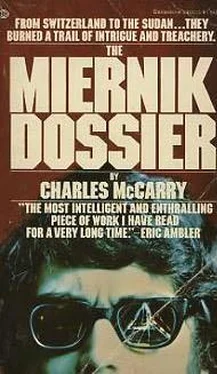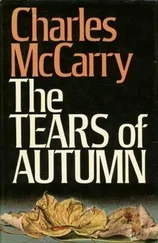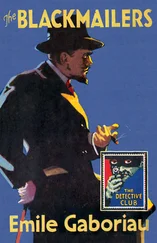Kirnov, chuckling, relit his cigar. Zofia’s face was wreathed in a smile. “Sasha,” she said. “I had never seen you dirty before.”
They were as cheerful over this memory of fifteen-year-old danger as they seemed to be concerning the hazards of crossing the frontier a few hours hence. They were proud of each other, a sly old fellow and a beautiful young girl who between them could outwit the world. They had done it in Warsaw and they could do it again. These two knew each other better than anyone else could know either of them. Whatever Sasha may be-KGB agent or part of a plot to do murder in the Sudan-he is a very good godfather to Zofia Miernik. He has raised her to live by her wits, and in her kind of life that is a more valuable training than religion.
No one who was in that cottage with them could have doubted that the current of love and trust that passed between them was real. I looked at Kirnov, who once again had his feet tucked under him like a tailor, and made a decision that I knew was not rational. I decided to trust him absolutely for the rest of the time I was in Czechoslovakia.
At a few minutes before ten, Kirnov began to tidy up the cottage. He removed all traces of our presence, wiping every surface we might have touched with a damp cloth; he even took the plates Zofia had washed out of the cupboard and polished them. “Now,” he said, “hands in pockets until we go. It’s always wise to leave the nest clean.” Zofia returned from the bedroom, wearing slacks and heavy shoes and a kerchief knotted under her chin. She carried a small red rucksack.
Inside the car, Kirnov turned to me. “Paul, I don’t for a moment think you are such a romantic as to carry a gun, much less use it. But I like to anticipate everything I can.”
“I won’t be doing any shooting,” I said. Absolute trust does not extend to telling an opposition agent whether you’re armed- especially when you’re not. Kirnov nodded in a satisfied way and started the Citroën. The ride was sedate, compared to our trip out from Bratislava. Kirnov seemed to be keeping to a close schedule; he looked at his watch often, and twice stopped the car to wait. Once, after checking the time and the landmarks, he pulled into a side road and turned off the lights and the motor. Through the open window I heard a couple of bicycles whir by on the highway. “Patrol,” Kirnov explained. We drove from there with the lights off and once nearly ran over an old woman in black who leaped out of the way with a yelp of fright.
We were driving north. On our left were the white fingers of the frontier searchlights along the Morava River. At Kúty we left the main highway and turned northwest over a series of dirt roads. Kirnov, still running without lights, put his head out the window. We crossed two rivers on wooden bridges; these must have been the Morava and the Dyje. Turning south, we passed under a railroad embankment, and Kirnov asked me to get out and walk ahead of the car. “You’ll see a grass path on your left in a few minutes,” Kinov said. “Guide me into it, please.”
Searchlights were visible again, only a few hundred yards to the south. I found the path Kirnov wanted, and he drove in and parked the car. We walked on for another half mile, through a grove of straight young trees. We were directly between two towers. I caught Kirnov’s sleeve and asked him where we were. “Twelve kilometers east of Drasenhofen,” Kirnov whispered. I snorted: Kirnov’s greedy officer of frontier guards was also our greedy officer of frontier guards. Sasha had led me to the crossing point I had been going to use in case I missed the river steamer.
It seemed unlikely that any amount of greed would persuade this officer to permit two crossings at the same point in one night. The escape Kirnov had arranged was scheduled to take place fifty minutes before the one Vienna had arranged for me. I fervently wished I had been told how much we had paid: any figure over five thousand dollars would have given me confidence that the officer planned to open fire at 11:30 P.M. instead of midnight. But I didn’t know.
Zofia was busy, pinning a white handkerchief to the back of Kirnov’s coat. “No more talking from here,” Kirnov whispered. “I’ll lead on.” He moved off, feeling his way among the slender trees. It was a shallow woods, and as we approached the edge of it there was some light from the backwash of the sweeping searchlights. These now lay only a few hundred feet ahead of us. Kirnov stopped, then straightened up with a large green bottle in his hand. “All is well,” he whispered. “Lie down. Ten minutes.” Zofia handed me the rake; I hadn’t noticed that she was carrying it, and in fact had forgotten all about it. Zofia and Sasha forget nothing. She unpinned the handkerchief from his coat and stuffed it into his pocket. Her teeth shone as she lay looking into Kirnov’s face; she was sprawled on her side, her head propped on her elbow. She kissed the little man.
The nearest watchtower was clearly visible above the trees to our right. Its searchlight swept the ground to either side in a W pattern, meeting the light from the adjoining towers at the points of the W. Anything moving across the plowed ground while both lights were working would certainly be seen at once. There were no dark spots. It was perfectly quiet; not even a cricket sang.
I found myself smiling broadly at the back of Kirnov’s nude scalp. If he had set up a trap to have me killed or arrested, I would just have to walk into it with his garden rake in my hand. The time Vienna had arranged for my crossing was fifty minutes too late. If I refused to go across at 11:10, Kirnov’s time, he had only to whistle up the guards. I could hardly dodge around in the woods for an hour, get back to the jumping-off point, and sprint across the border alone. Even if I wasn’t shot on the spot, I was carrying enough forged papers to spend the rest of my life in Pankrac. [5]The idea of overpowering Kirnov did not seem realistic. I could not have done it quickly enough to prevent Zofia from giving the alarm. Breaking Zofia’s neck was not an appealing prospect. I have never been sure that all that deadly stuff we had in training would work in real life. I could imagine Kirnov slipping out of my judo grip like an eel instead of dying with a twitch and a sigh. The truth of the matter is that Kirnov’s story about the Warsaw attic kept me from getting too bloodthirsty: who could strangle a Jew who had come that close to being killed by the SS?
Kirnov reached over and took my hand. He tapped my watch with his forefinger and then gave my hand a squeeze. It was 11:09. All three of us rose to our knees. We were in a pocket of silence (one does hear one’s own heart at such moments), and then we heard the sound of a man talking loudly in Czech.
The searchlight wavered, then stopped sweeping, its beam pointed away from us at an acute angle. The light on the left kept tracking its own perfect W. There was a corridor of darkness about 50 yards wide directly ahead of us. “Go,” Kirnov said. Zofia stood up and strode out of the woods and into the plowed ground. Before I turned around to begin raking away our footprints, I looked up and saw the light in the window of the farmhouse in Austria. Zofia reached behind her and grabbed the tail of my coat.
It was a very slow trip. I had difficulty seeing our footprints, and the dirt was slick with dew. It stuck to the teeth of the rake. I had to tell Zofia to go slower. She immediately obeyed. Behind us I could hear the officer berating his men. The watchtower was a distinct outline, a skeleton of planks with the light mounted on a pedestal behind the front railing. To the right of the tower, about a hundred yards away, I saw a group of soldiers with slung rifles. They had their backs to us, and they were staring upward at the tower. Zofia walked on, exerting a steady pull on my coattails. “Twenty meters more, fifteen meters more, ten meters more,’ she said in a low, steady voice as we went. Finally she said, “The meadow.”
Читать дальше












